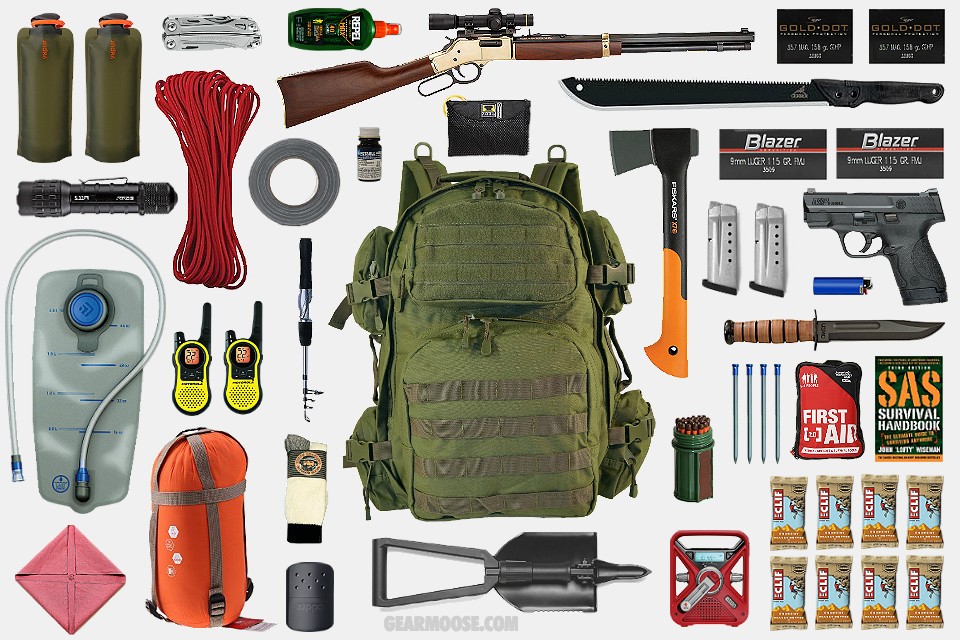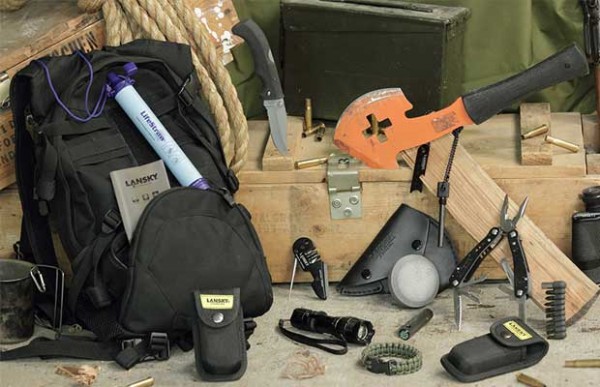
You probably have a well-stocked bug-out bag (BOB) stowed away at home in case SHTF, but what about your car? Emergencies can also happen while you're on the road, which is why you should have a BOB for your vehicle as well. Here are the top 20 items you need to pack in your car BOB. (h/t to FoodStorageMoms.com)
It is ideal to use a durable canvas bag to store all your emergency supplies. Keep in mind that while these items can be useful during emergencies on the road, this list is not meant to be a definitive list of all the prepping items you will ever need in your vehicle's BOB. Different geographical locations and different roadside conditions will require you to adjust your BOB's contents to suit your own personal needs. Remember to take into account your local weather and climate. (Related: A basic list of winter survival items you should carry in your car.)
First aid kit
A basic first aid kit should include bandages, gauze pads, tweezers, ointments, disinfectants, and medication for car sickness and minor ailments.
Emergency drinking water
Stay hydrated while on the road by packing reusable plastic bottles filled with clean, drinking water.
Emergency food supply
Some ideal options for emergency rations include granola bars, high-protein dried fruits, nuts, trail mix, and other non-perishable snacks.
Emergency toilet
After eating all those emergency rations, you might find yourself in need of an emergency toilet. You can use disposable 4-gallon bags to cleanly contain your bodily waste. For sanitation purposes, be sure to use bags equipped with deodorant chemicals and not just regular plastic bags. You should also have a roll of toilet paper or two.
Hygiene items
Good hygiene is very important to prevent the spread of bacteria when you're on the road. Keep your hands clean by packing the necessary personal hygiene items, such as baby wipes, hand soap, and hand sanitizer.
Emergency road flares
In case your car breaks down, you need to keep yourself visible to make sure rescuers can find you, especially during cases of severe weather. Emergency road flares are a great way to make your presence known.
Flashlights with extra batteries
You can use flashlights to signal for help or make vehicle repairs in the dark. Be sure to have an extra pair of batteries in case your flashlights run out of power.
Portable radio with extra batteries
Your car might have its own radio but you can bring a portable radio with you if you have to walk somewhere on foot. It can be useful for learning about weather updates and local current events.
Names and phone numbers of people to contact in an emergency
In case something happens to you, a list of emergency contacts can make it easy for emergency responders to know whom to notify.
Compass
You can reduce your chances of getting lost with a trusty compass.
Maps
GPS technology requires battery power, but a map does not.
Blanket
Blankets provide an extra layer of warmth during cold weather.
Matches or lighters
If you suddenly need to start a fire, having either one of these can save you a lot of trouble.
Pocket knife
A decent pocket knife can cut anything open in an emergency.
Tire gauge
It is important to check your tire pressure on a regular basis.
Toolbox
This will allow you to make quick repairs, should the need arise.
Change of clothes
You might need an emergency change of clothes if you've been on the road for a while. Make sure to pack a pair of comfortable walk shoes in case you have to go somewhere on foot.
Emergency cash
It is recommended to have around 50 dollars in small bills for emergency use.
Pen and paper
You can write down small notes to remind yourself of things you might otherwise forget.
Paracord
You never know when you might need to tie your prepping equipment together.
Sources include:
Please contact us for more information.



















